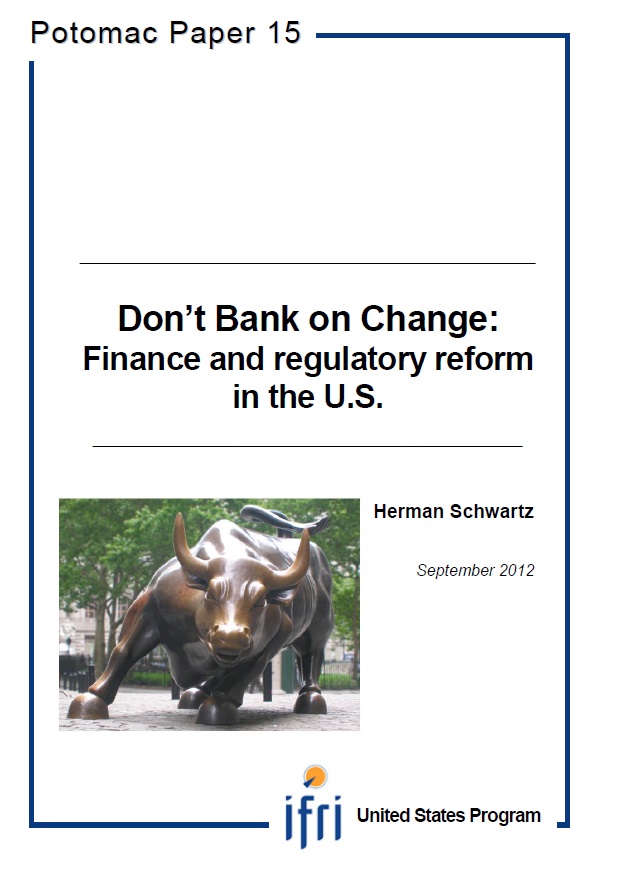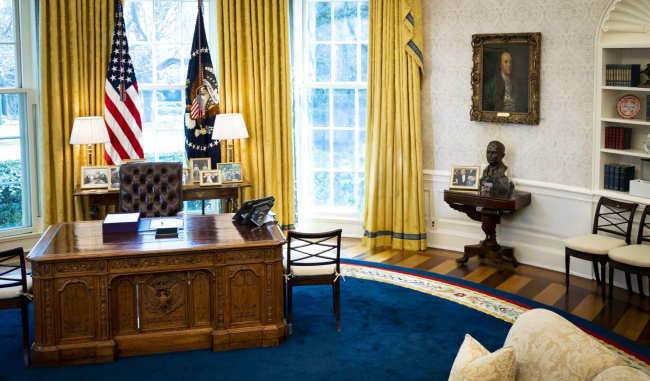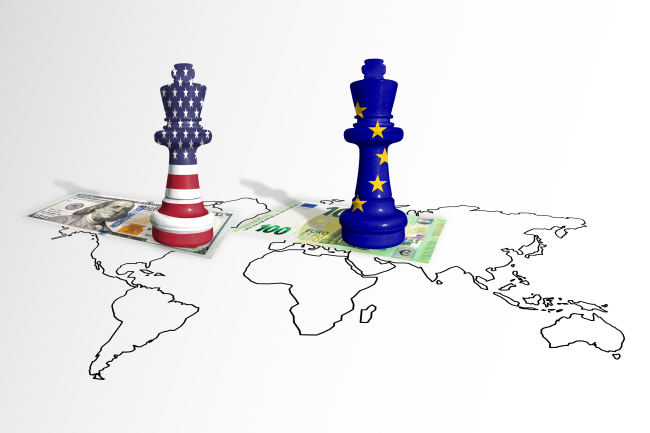Don't Bank on Change: Finance and Regulatory Reform in the U.S.

As a number of provisions of the Dodd-Frank Act are entering into force, five years after the beginnings of the financial crisis, Professor Herman Schwartz explains how the U.S. banking community will continue to hurt the interests of the American economy and political system.
After the 1929 financial crash that caused the Great Depression, the financial system in America was kept safe through a system of formal and informal regulation: the 1933 Glass-Steagall Act kept commercial banks apart from investment banks, and all banks apart from insurance companies; federal housing corporations handled mortgage loans and channeled them towards pension plans, keeping these long-term assets apart from short-term financial instruments managed by banks, thus avoiding “maturity mismatches”.
Following years of lobbying, financial companies finally achieved global de-regulation: the 1999 Gramm-Leach-Bliley Act removed the firewall between banks and insurance companies. The 2000 CFMA Act deregulated most financial instruments, such as CDS and CDOs, and allowed banks to buy long-term assets with short-term money. Tradable assets multiplied, bringing massive profit to financial institutions based on unsound situations. When risky speculation on housing loans finally met with default, this spread to the entire financial system in a series of bank runs, giving way to the major financial crisis of 2007-2008. The federal government responded by bailing out a number of failed institutions that were “too big to fail”.
The Dodd-Frank Act of 2010 endeavors to re-regulate the system: it plans to re-segregate the different types of financial institutions under the “Volcker rule”; it includes better consumer protection, through for instance better disclosure of financial risks; and proposes many excellent regulation provisions under the authority of the Financial Stability Oversight Council.
The U.S. banking community, however, has influence not only over U.S. politicians both Republican and Democrat (through its ability to fund their campaigns), but also on the Federal Reserve system, as well as on most private businesses in the country. Dodd-Frank is therefore faced with intense lobbying for the watering-down and delaying of its provisions. Prospects for an efficient implementation are at best fragile. Additionally, the current limitation of maturity mismatches seems to be only fear-induced and will in all likelihood not last very long.
In a stern and rather pessimistic appraisal, Professor Herman Schwartz explains how the U.S. banking community will continue to hurt the interests of the American economy and political system.

Available in:
Regions and themes
ISBN / ISSN
Share
Download the full analysis
This page contains only a summary of our work. If you would like to have access to all the information from our research on the subject, you can download the full version in PDF format.
Don't Bank on Change: Finance and Regulatory Reform in the U.S.
Related centers and programs
Discover our other research centers and programsFind out more
Discover all our analysesDonald Trump v. the States: the Case of New York
While the disruptive policies of the second Trump administration are being implemented at the federal level and on the international stage, they are also being felt in the federal states and major cities across the country. In the spring of 2025, several cases involving the state and city of New York demonstrate that the president’s attacks on environmental protection, the separation of powers, freedom of speech, etc., are also being carried out at the local level.
How the US under Trump Became a Strategic and Ideological Adversary of Europe
The Europeans' worst security nightmare seems to be coming true: on Tuesday, February 18, 2025, U.S. Secretary of State Marco Rubio and Russian Foreign Minister Sergey Lavrov met in Saudi Arabia to initiate the normalization of relations between their two countries. The meeting also aimed to set up peace negotiations for Ukraine. However, despite having the potential to affect the entire continent, the discussions took place without the Europeans or the Ukrainians being present.
Will Trumpian Authoritarianism Lead to a Constitutional Crisis?
Since his return to the White House on January 20, 2025, President Donald Trump has signed around sixty executive orders to implement his political agenda. Numerous other measures have also been introduced by the White House and the new Department of Government Efficiency (DOGE) as part of these orders.
Trump’s Second Term: Laying the Groundwork for a New Trade War
In a statement released on February 1, 2025, President Trump announced the implementation of a 10% tariff on Chinese goods and a 25% tariff on imports from Canada and Mexico. While the former took effect via executive order on February 4, the latter were granted a 30-day reprieve. Sanctions targeting European Union (EU) products are said to be imminent.








